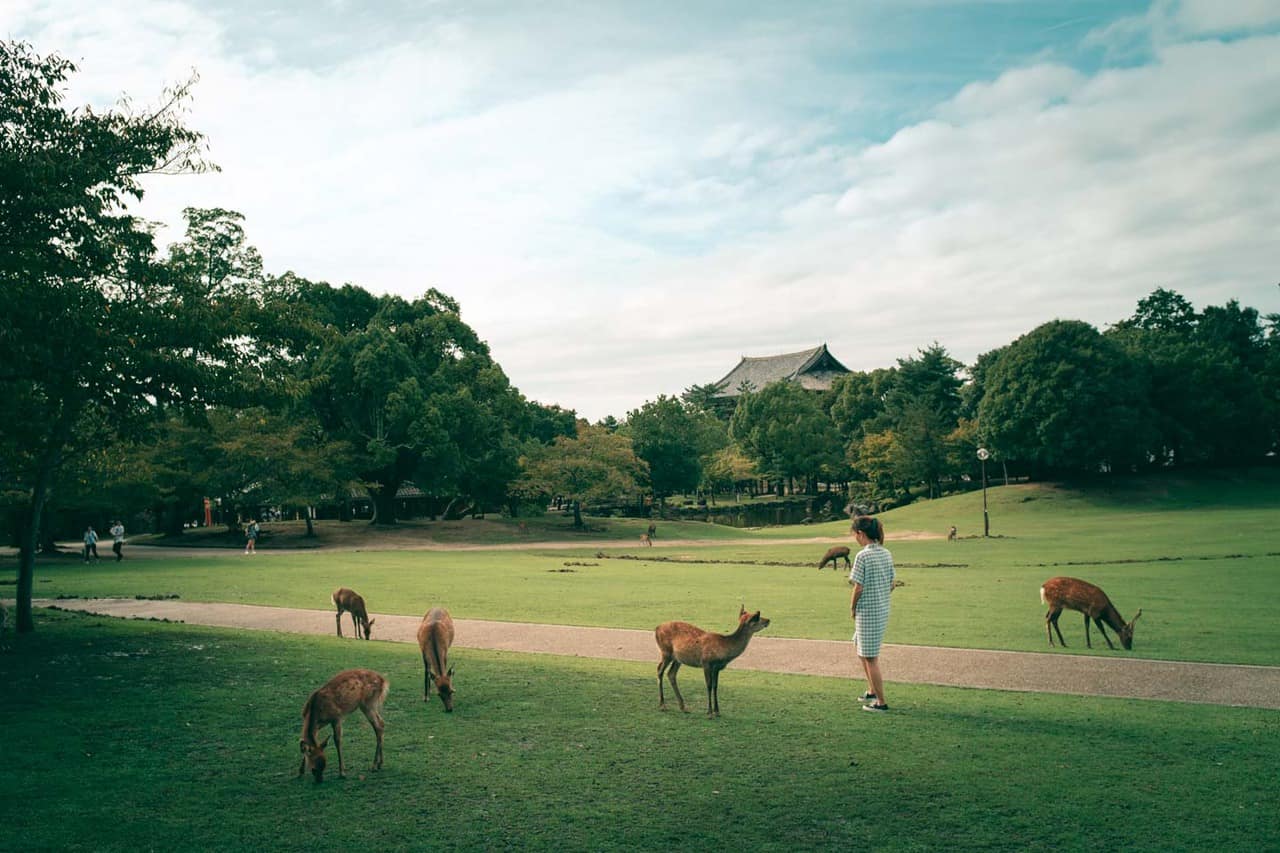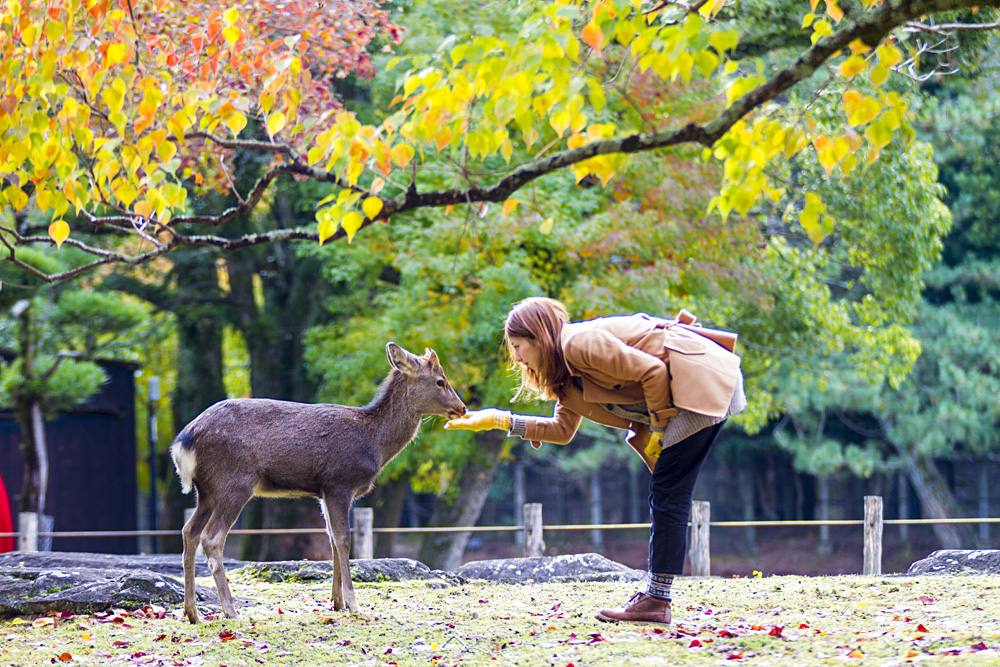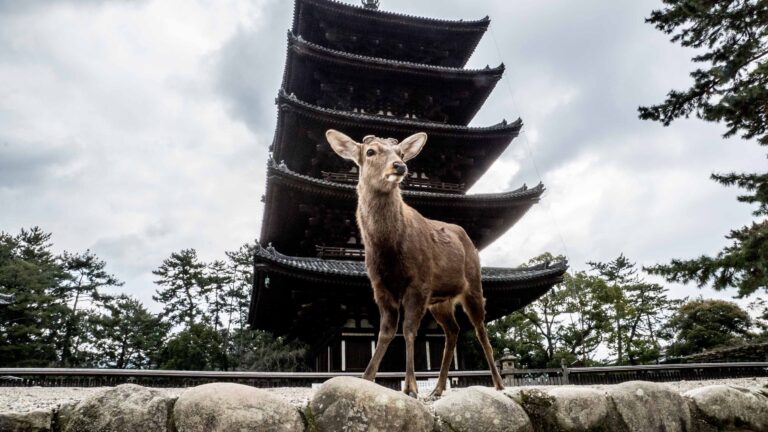Share this
Nestled in the heart of Japan’s Kansai region, Nara stands as a testament to the country’s rich cultural heritage and deep reverence for nature. Renowned as Japan’s first permanent capital, Nara holds a unique charm that captivates visitors from around the globe. However, what truly sets this city apart is its harmonious coexistence with a special inhabitant: the majestic Sika deer.
Historical Tapestry
Nara’s history dates back over 1,300 years when it served as the capital of Japan from 710 to 794 AD. During this period, known as the Nara period, the city flourished as the political, cultural, and economic center of Japan. Many of Nara’s most iconic landmarks, including the UNESCO World Heritage Sites of Todai-ji Temple, Kofuku-ji Temple, and Kasuga Grand Shrine, were established during this illustrious era.
The Divine Messengers
Central to Nara’s allure are its resident Sika deer, considered divine messengers in Japanese folklore. Believed to be the sacred companions of the Shinto deity Takemikazuchi-no-Mikoto, these gentle creatures roam freely throughout Nara Park, adding a unique dimension to the city’s cultural landscape.

Nara Park
Spanning over 1,200 acres at the foot of Mount Wakakusa, Nara Park serves as the primary sanctuary for the city’s deer population. Here, visitors can stroll along picturesque pathways, shaded by towering cedar trees, while encountering these friendly deer at every turn. The park’s tranquil ponds, lush gardens, and historic monuments provide a serene backdrop for unforgettable encounters with nature.
Deer Interaction
Feeding the deer is a cherished tradition in Nara, offering visitors an opportunity to connect with these magnificent animals up close. Vendors throughout the park sell “shika senbei” (deer crackers), specially formulated treats that the deer eagerly accept. Feeding the deer is not only a delightful experience but also a symbol of respect for Nara’s centuries-old bond between humans and wildlife.

Preservation Efforts
Despite their revered status, Nara’s deer population faces modern challenges, including habitat loss and environmental degradation. To ensure the continued well-being of these cherished creatures, local authorities have implemented conservation initiatives aimed at preserving Nara’s natural heritage. Through sustainable management practices and community engagement, efforts are underway to safeguard the future of Nara’s beloved deer population for generations to come.
Conclusion
Nara encapsulates the essence of Japan’s cultural heritage and spiritual traditions, offering visitors a journey through time amidst the serene beauty of nature. From its historic temples and shrines to its enchanting deer park, Nara invites travelers to immerse themselves in a world where the past seamlessly blends with the present. As the deer roam freely in this ancient capital, they serve as living symbols of Nara’s enduring legacy as a sanctuary of peace, harmony, and reverence for all living beings.




0 Comments